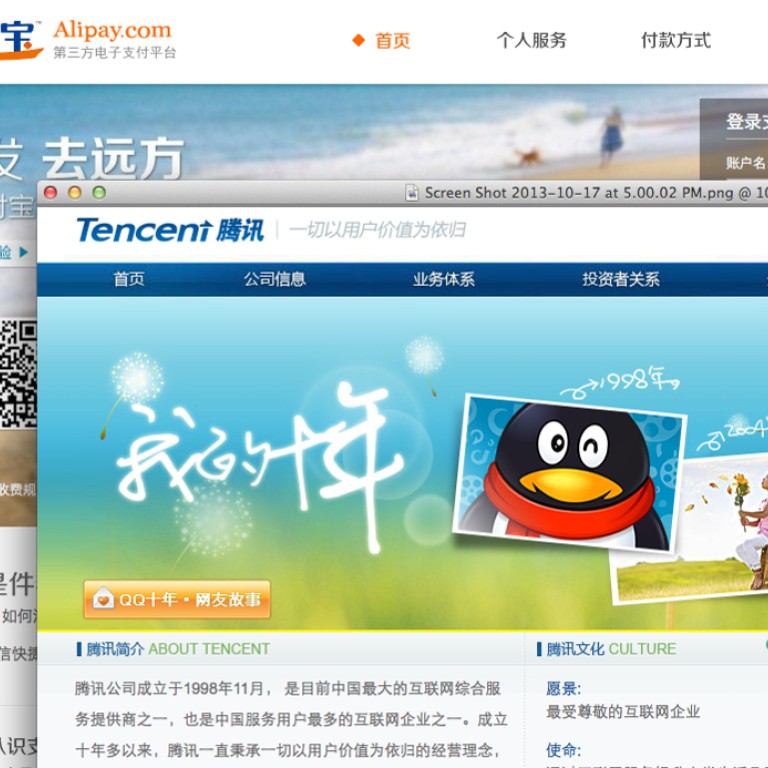
Tencent guarantees all financial transactions after barrage of criticism by rival Alibaba
The comments were made at a press conference about the new “Alipay wallet” version 7.6 will offer accounts to the public, banks and businesses. Using an individual account number, users will be able to instantly access their bank balance and mobile phone account.
Wechat, an instant messaging service owned by Alibaba’s rival Tencent, has previously offered mobile payment services and recently announced it would soon add a market place service within the application. This development will intensify the already fierce competition between the two companies.
Alibaba Chairman Fan Zhiming condemned the prevalence of unsolicited, dodgy sales pushed on Wechat users, “Wechat groups have become a battlefield for the sale of dubious goods”, ifeng reported from a press briefing given by the company yesterday.
Fan also laid scorn on Wechat’s attempts to offer financial services, saying that the messaging service is not able to guarantee safe transactions. He emphasised Alibaba’s ten years of experience in the industry and added, “If you don’t have a diamond drill, don’t try to make chinaware”, suggesting Wechat’s team was not adequately skilled to offer financial services.
His words were echoed by the chair of the board of Alibaba’s research institute later in the afternoon. Chen Dawei, described Wechat’s system as extremely insecure, because it does not use an account but simply relies on a user ID number. Once an ID number is compromised it’s possible to gain instant access to that user’s funds, he said.
By Thursday evening, Tencent had responded by broadcasting a guarantee for all transactions made using their payment platform. “You’re brave enough to pay, I’m brave enough to say I’ll compensate you” headlined a post across their news app and QQ pages. Users will now be able to claim compensation for any theft of funds or losses incurred while using their latest Wechat version 5.0.
Speculation continues over Alibaba’s intentions to list the company.
At the Alibaba press briefing, Peng Lei, the CEO of Alibaba Small & Micro Financial Services Group said that the shareholder structure of the group will soon be made public. The group includes Paypal-like service Alipay, which accounts for around half of all online payments made in China. Its other services currently include microloans, guarantees, and insurance. Lei added that they expect to start offering mutual funds in the near future.
“In the past three years I’ve repeatedly split and merged sections for Alipay’s mobile business to search for a breakthrough in innovation,” said Peng, “What we want is to help users complete any money-related functions they want on the Internet.”, according to Bloomberg’s report of what was Peng’s first media conference since being appointed CEO in March.
As rumours circulate on Chinese media that the company could become China’s first private bank, Alibaba executives deny they intend to apply for an online banking licence, but say they remain interested in running a private bank in the future.

